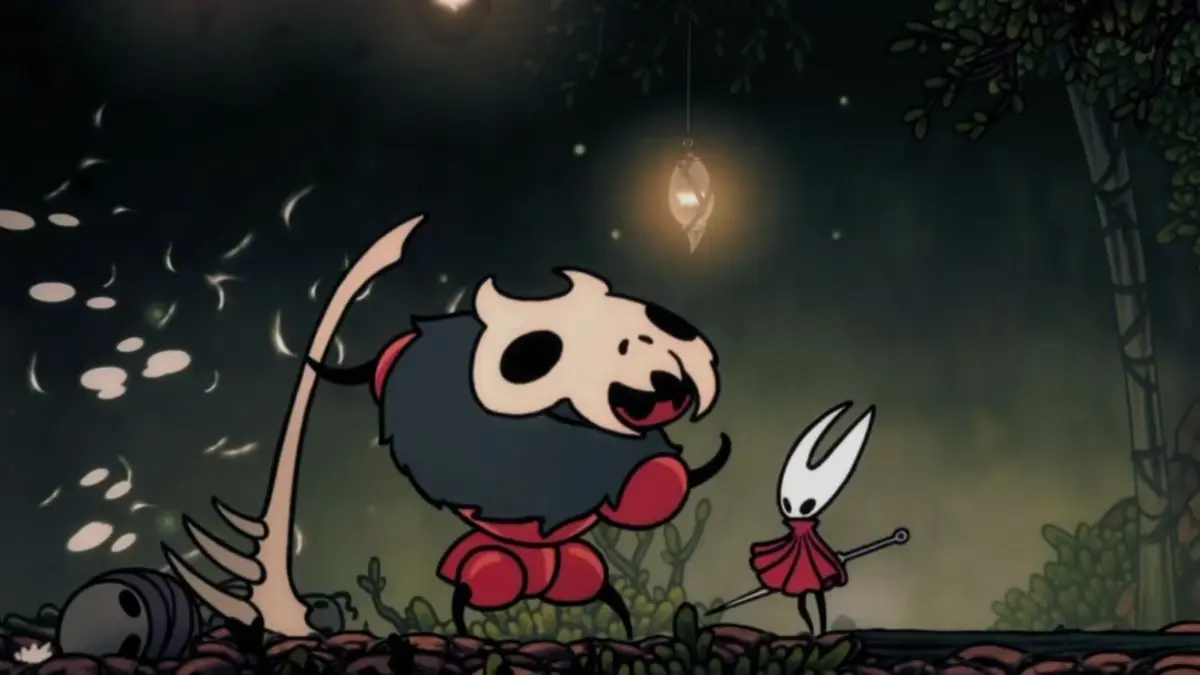Hollow Knight Silksong gets review-bombed on Steam for Chinese translation issues

“Verily, thou art the Primordial Knight of”… questionable translation, no wonder Chinese Silksong fans were full of frustration.
Hollow Knight: Silksong, arguably the most-anticipated game of 2025, has launched to mostly glowing reviews around the world, but in China the game is facing backlash over its Simplified Chinese translation.
Players have described the localisation as confusing, archaic, and out of step with the tone of the game, leading to thousands of negative reviews.
Review scores fall in China
On Steam, Silksong currently has a 92% approval rating from English-language reviews. But once filtered for Simplified Chinese, the score drops sharply, with many players leaving negative feedback. Out of about 116,000 plus total reviews, around 26,000 plus are negative in Chinese alone.
Team Cherry’s publishing lead Matthew Griffin acknowledged the issue in a statement on X (formerly Twitter):
"To our Chinese speaking fans: We appreciate you letting us know about quality issues with the current Simplified Chinese translation of Hollow Knight: Silksong,” he said. He also added that they will be “working to improve the translation over the coming weeks” and thanked the fans for the feedback and support."
Players criticise the writing style
The main complaints focus on the style of writing. Translation expert Loek van Kooten compared it to "a high-school drama club's Elizabethan improv night," saying quest hints turn into riddles and ordinary dialogue becomes difficult to read. One passage translated back into English reads:
“With nary a spirit nor thought shalt thou persist, bereft of mortal will, unbent, unswayed. With no lament nor tearful cry, only sorrow’s dirge to herald thine eternal woe. Born of gods and of the fathomless abyss, grasping heaven’s firmament in thine unworthy palm. Shackled to endless dream, tormented by pestilence and shadow, thy heart besieged by phantasmal demons. Thou art the chalice of destiny. Verily, thou art the Primordial Knight of Hollowness.”
Others in the localisation community also spoke out. Tiger Tang, who worked on the Chinese translation of OMORI, said in a post on X that the text "reads like a Wuxia novel instead of conveying the game’s tone."
Controversy before release
According to a blog post by video game localisation services Loekalization, the trouble started more than two months earlier.
Months before launch, one of the credited translators, known online as Hertzz, identified himself publicly on Chinese social media platform Heybox. He revealed details about the project, hinted at release windows, and discussed terminology decisions, actions seen as breaking his non-disclosure agreement.
Silksong credits only two people for the Simplified Chinese translation, compared with six on the first Hollow Knight. The second translator, Finn Wu, has become a point of speculation. Some players believe he may be a medical translator, while others think he could be a professor of classical Chinese literature. Fans say this could explain why the text feels both overly formal and weighed down with archaic language.
What happens next
While Silksong has been praised for its gameplay elsewhere, many Chinese players argue that the localisation needs to be redone before it can stand alongside the first Hollow Knight. Griffin has confirmed the developers will work on fixes, though fans are already urging Team Cherry to bring back the translators from the original game.
If you plan to play Hollow Knight: Silkong anytime soon, here are a few tips to remember before diving into Pharloom.













